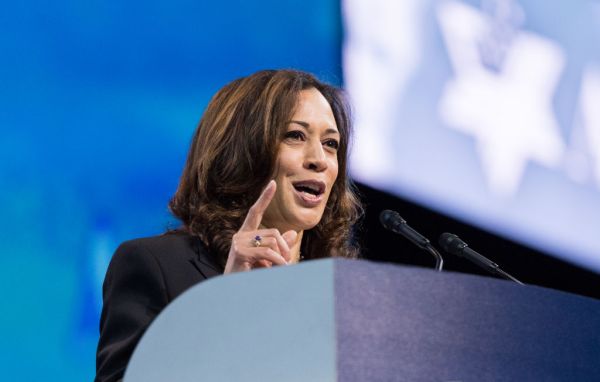As a student in Lebanon in the 1990s, I believed that the Jewish state sought to occupy Arab lands “from the Euphrates to the Nile,” and I was hardly alone. My view of Israel began to change, though, in 2000, when I saw Israel for the first time, albeit through barbed wire. I had just graduated from the American University of Beirut, and Israeli troops had just withdrawn from southern Lebanon. This prompted many Lebanese—myself included—to flock to the border and look through the fences. The communities on the Israeli side appeared to be impeccably designed, while Lebanon was still recovering haphazardly from a decade and a half of civil war.
I wanted to know what made Israel stable and prosperous, yet in Lebanon at the time, literature about Israel consisted mainly of antisemitic books. I turned to the internet, scavenging for resources that helped me learn Hebrew. I also found one spot in Beirut—at the westernmost tip of Beirut’s coastline, underneath the New Lighthouse—where my AM radio could receive the signal from Israel’s Reshet Alef channel. I spent hundreds of hours listening, learning, and decoding printouts of the Hebrew press, all in secrecy for fear that doing so would be construed as “normalization with the Zionist enemy.”
I also drove to the border to train my Hebrew across the barbed wire. Israeli troops were amused that a Lebanese was dabbling in their language, but Hezbollah militiamen berated me for “talking to the enemy.” Lebanese law prohibits any dealing with Israelis, including talking to them. I was learning about Israel, but at an agonizingly slow rate.
My break came when I immigrated to Washington in 2004, where I started consuming everything Hebrew, from the writings of Rav Kook, the father of religious Zionism, to books by left-wing writers like Amos Oz. I watched all kinds of Israeli films and television shows, old and new, from Sallah Shabati to the popular series Srugim and Shababnikim.
Yet to this day I have not visited Israel. Doing so would risk entanglement with Lebanese authorities during my visits to Beirut.
Still, I came to see that Zionism is not a conspiracy, but the basic idea that the long history of antisemitism and Jewish suffering, culminating in the Holocaust, created the need for a sovereign Jewish homeland. For Israel, that sovereignty is non-negotiable. This may seem obvious, but it has direct implications for the debate over normalization.
I have found that the Palestinian diaspora, especially in the United States, wants a binational state where Jews and Arabs would live equally, at least in theory. Yet both Jews and Arabs know that demographics favor the latter—there are 2 million Arabs in Israel now, 5 million in the Palestinian-controlled territories, and growth trends favor Arabs—so the passage of time would wrestle sovereignty out of Jewish hands.
In my first job as a reporter, at the now-defunct Lebanon Daily Star, I covered the Arab League Summit in Beirut in 2002, where the Arab Peace Initiative first saw the light of day. In theory, the initiative calls for the same kind of two-state solution favored in Washington and across Europe. The catch is that the Arab plan called for “a solution to the Palestinian refugee problem in accordance with United Nations General Assembly resolution 194”—which included “right of return”—which Israelis see as another demographic threat to their sovereignty.
In the 1990s, Israel experimented with the two-state solution while postponing discussion of Palestinian claims to a right of return. Although the Second Intifada (2001-2006) appeared to kill the peace process, in 2008, then-Prime Minister Ehud Olmert made an offer to Palestinian leader Mahmoud Abbas: Palestinians would get the West Bank in full (with minor land swaps) and a land bridge to the Gaza Strip, and East Jerusalem would be placed under U.N. sovereignty. Abbas did not accept because he said the “refugee issue was not resolved.”
Four years later, Abbas himself tried to convince Palestinians that peace meant accepting a state in the West Bank and Gaza, without returning to lost homes inside of Israel. Speaking of his own home in Safed, he said, “It’s my right to see it, but not to live there.” His statement enraged Palestinians, forcing him to walk it back.
A two-state solution is no closer today than it was in 2012. It should not be surprising that some Arab states finally decided that there was no point in waiting for Palestinians to accept a version of the two-state solution that did not embed within itself a demographic threat to Jewish sovereignty. Was it their obligation to perpetuate an endless conflict and harm their own interests in the name of solidarity? Beginning with the UAE and Bahrain, they chose to establish relations with Israel.
The question now is whether Saudi Arabia will join them in normalizing relations. Saudi Arabia plans to become the Middle Eastern hub of multinational corporations, which will be difficult to do without the Israeli economy, the third largest in the region. Riyadh also recognizes the need for allies who face similar threats from Iran. Thus, it has been inching closer to peace with Israel, with its media leading the way, including Al-Arabiya’s unprecedented interview with Israeli Prime Minister Benjamin Netanyahu last month.
Saudi networks have started inviting Israeli pundits on their shows, a practice that remains taboo on most Arab channels. Saudi networks have found it hard to pair Israelis with Arab counterparts, who are usually mindful of laws (or harassment even in countries at peace with Israel) in their home countries that criminalize going on any TV with Israeli guests. The silver lining? Plenty of airtime for Arab commentators, myself included, who treat Israelis as peers.
For his part, Netanyahu has tasked one of his closest advisers, Strategic Affairs Minister Ron Dermer, with bringing Saudi Arabia into the Abraham Accords.
While Riyadh and Jerusalem negotiate, Arab advocates of peace have a crucial role to play. The first step is to defy pervasive shaming by fellow Arabs and come out as proponents of normalization. Their voices can help bring peace talks across the finish line, because fear of a public backlash is precisely what constrains so many Middle Eastern leaders who would prefer to treat Israel as a neighbor, not an enemy. For those questioning whether to go public with their views on normalization, it is worth recalling the words of the fourth Muslim caliph and First Shia imam, Ali Bin Abi-Talib, who said: “Don’t feel lonely when you travel on the road of rightness alone.”








Please note that we at The Dispatch hold ourselves, our work, and our commenters to a higher standard than other places on the internet. We welcome comments that foster genuine debate or discussion—including comments critical of us or our work—but responses that include ad hominem attacks on fellow Dispatch members or are intended to stoke fear and anger may be moderated.